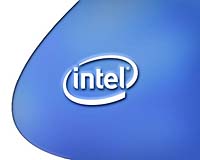 |
San Francisco (AFP) Aug 10, 2009 The Green Electronics Council on Monday went international with a registry that shows how computers and monitors measure up when it comes to being Earth-friendly. Electronic Product Environmental Assessment Tool (EPEAT) registry that gives green ratings to computer desktops, laptops, and monitors has been localized for 40 countries. "It is an exciting development," said EPEAT executive director Jeff Omelchuck. "It is driven by a global demand for a system to evaluate these products." EPEAT was launched in the United States in 2006 with corporations and other large IT purchasers in mind but the registry is available for anyone to consult online for free at epeat.net. The registry is now localized to specified countries. "Before, you might fall in love with a laptop on the registry only to find out it is not available in your country," Omelchuck said. "Now, registries show products available in your country and environmental characteristics particular to your country." Registries unveiled on Monday were customized for places including Canada, Europe, China, Japan, Taiwan, Australia, New Zealand, Brazil, and Mexico. Electronics makers and other interested parties establish EPEAT criteria used to rate computers, with bronze, silver, and gold being the top rankings in succession. "This is like cats and dogs playing together," Omelchuck quipped, referring to manufacturers, health groups, environmentalists, consumers, recyclers and others that collaborate to set EPEAT standards. "Stakeholders that are often adversaries worked together for three years to define what a green PC is." EPEAT is seeing increased international participation in the green standards setting process. An estimated 60 billion dollars worth of computer purchase contracts in the market specify products must be EPEAT registered, meaning that machines without winning green marks don't qualify for that business. The city of San Francisco mandates EPEAT's top gold ranking for computers it purchases. "It allows you to express your values with your purchase dollars," Omelchuck said. "EPEAT has become quite a comprehensive resource with pretty impressive commercial demand for green IT." EPEAT standards factor in energy savings, production methods, toxic components, packaging, life spans, and the ease with which electronics can be recycled. "EPEAT is giving customers an easy way to see the impact of the products they are buying," said Steve Hoffman, director of strategic marketing and sustainability initiatives at Hewlett-Packard. US computer giant HP lays claim to being the first IT company to ship a product with a gold ranking from EPEAT. "Energy efficiency helps customers save money; carbon footprint takes customers to another level," Hoffman said. "We are seeing companies looking at ways to meet their IT requirements in the most environmentally responsible way they can." EPEAT gold rankings have been earned by the bulk of the roughly 120,000 computers and monitors reportedly bought annually by US health maintenance organization Kaiser Permanente. "We wanted to be purchasing environmentally superior products; a defined industry standard makes our job so much easier," said Robert Gotto, senior director of medical sourcing at Kaiser. "The rate at which manufacturers are developing products to meet EPEAT standards has been very impressive." Kaiser has saved millions of dollars in electricity costs due to EPEAT stamped gear while investing in equipment with fewer heavy metals and other life harming chemicals, according to Gotto. "It has been a massive environmental improvement for use and we've seen a cost savings as well," Gotto said. "I presume Europe, Asia and other parts of the world will get the same benefits we have." EPEAT, which is overseen by the nonprofit Green council, was started with a grant from the US Environmental Protection Agency but is now supported by fee manufacturers pay to register products. Share This Article With Planet Earth
Related Links Computer Chip Architecture, Technology and Manufacture Nano Technology News From SpaceMart.com
 European fine sends Intel into the red
European fine sends Intel into the redNew York (AFP) July 14, 2009 Intel posted a second-quarter net loss on Tuesday as a record fine by European Commission antitrust regulators sent the US computer chip giant into the red. Intel reported a net loss of 398 million dollars for the April-June period after being hit with a 1.45-billion-dollar fine in May for allegedly abusing its stranglehold on the semiconductor market to crush its main rival, AMD. Intel ... read more |
|
| The content herein, unless otherwise known to be public domain, are Copyright 1995-2009 - SpaceDaily. AFP and UPI Wire Stories are copyright Agence France-Presse and United Press International. ESA Portal Reports are copyright European Space Agency. All NASA sourced material is public domain. Additional copyrights may apply in whole or part to other bona fide parties. Advertising does not imply endorsement,agreement or approval of any opinions, statements or information provided by SpaceDaily on any Web page published or hosted by SpaceDaily. Privacy Statement |